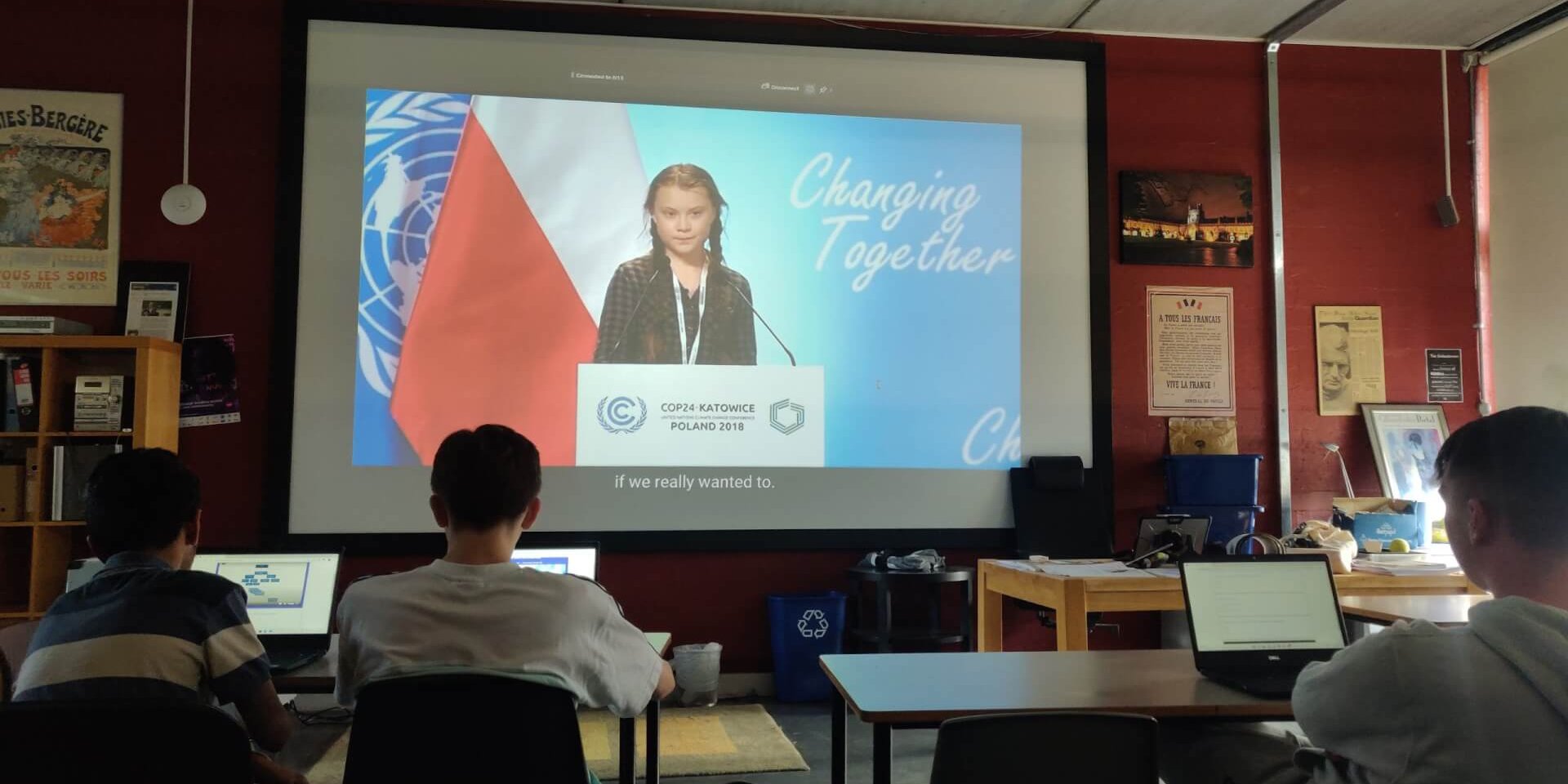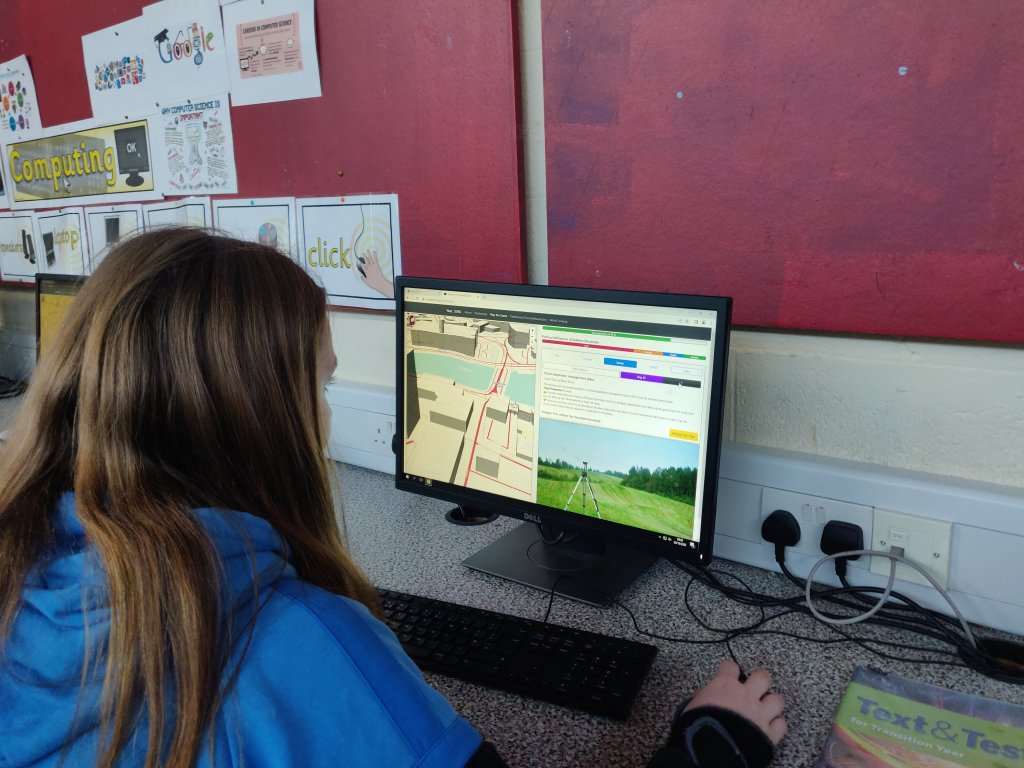
This blog is part of a series of perspectives from ISC Fellows and other members of the ISC’s network on the forthcoming United Nations Climate Change Conference (COP27), which will be held from 6 to 18 November 2022 in Sharm El Sheikh, Egypt.
Greta Thunberg has thrown down the gauntlet to those attending COP27 in her recently published Climate Book. She focuses on reducing emissions from fossil fuels and not just those that currently ‘count’ in standardised emissions calculations, but also wider indirect emissions resulting from production and consumption processes; conventionally referred to as Scope 3 emissions. As Greta rightly points out, you need to turn off the tap to stop a bath from flooding.
Structural changes to the ways we produce and consume are urgently needed. The contradictions between economic models based on ever expanding growth and planetary boundaries have been set out in numerous reports published by the UN in October alone. Indeed, the UN environment agency found “no credible pathway to 1.5C in place” and limited progress on cutting carbon emissions. These issues must be confronted head on at COP27 if the process is to retain any integrity.
The kinds of transformations called for by Greta, and many other scientists working on sustainable production and consumption, demand significant lifestyle changes, primarily amongst wealthy nations and individuals who have the most damaging ecological footprints. This will require changes not only to the way we produce goods and services, but also to cultures of consumption and the global rules of trade. This means a radical transformation of how we value goods and services and ultimately how we wish to live.
It is at the intersection of these transformative changes that the essential mitigation of climate change meets adaptation. As noted by the EU, “adapting to climate change means taking action to prepare for and adjust to both the current effects of climate change [and] the predicted impacts in the future”. Current pledges for action suggest we are heading towards a 2.5˚C rise in global temperatures.
Here in Ireland, climate mitigation and adaptation activities come together under one term – ‘climate action’ – a useful approach: words matter. However, the implementation of adaptation actions remain in their infancy and the connection between mitigation and adaptation is rarely made, particularly in relation to organizational and societal behaviour change. This is not unique to the Irish context.
People must be brought more directly into a period of deliberation about climate change adaptation, both to reinforce climate mitigation efforts and in order to manage the unavoidable climate change that has already been set in motion. This is not a new stance, as outlined in a recent review. Public participation is easy to talk about but notoriously challenging to do in a meaningful way. It is a process, not a silver bullet, and a process that demands investment to build knowledge, trust, transparency and accountability.
Over the past two months 300 15-16 year olds in Dublin have completed the climate smart challenge – following an interactive learning module on climate change adaptation – which culminates in the serious game ‘iAdapt’. This is an interactive online role play game where the students adopt the persona of a future mayor of Dublin in 2045 and have five years to develop city defences and support its citizens to adapt to the predicted climate changes. Real maps and predicted flood data (and their impacts) are used to bring the matter of climate change into spaces that the students themselves inhabit. Players have a politically diverse population to serve and are provided with an annual budget to spend on a range of interventions – from grey interventions such as sea walls and flood barriers, through nature-based ‘green’ solutions to societal capacity building strategies such as community adaptation plans and citizens assemblies. A range of experts from economic, social and environmental positions provide advice on selections before players submit their plans and wait for the annual flood to occur. This all provides a springboard for students to discuss matters as diverse as the meaning of justice and citizenship to managing complex wicked problems under conditions of uncertainty. The goal of the climate smart challenge is to provide the foundational building blocks for a new generation of knowledgeable and empowered citizens. Early analysis suggests engagement with the materials does lead to greater knowledge and sense of efficacy. This is positive, but education, while essential, is alone insufficient to ensure these capabilities are nurtured and enacted.

I was once told by an economist that education on climate change doesn’t lead to a drop in emissions so it wasn’t worth prioritizing. Such findings are unsurprising if the learning taken from education doesn’t fit in the machinations of our unsustainable society. The existence of a value-action gap in relation to environmental issues is well-known. It persists because the rules, tools, skills and understandings needed to reorient production and consumption onto more sustainable pathways and support adapted lifestyles are not being developed and implemented in unison. For example, in order for people to adopt low carbon travel options such as cycling or public transport they need to know why this is important and how to use these forms of mobility. At the same time social norms and regulatory rules need to support these actions and most fundamentally, the tools themselves (e.g. bikes, buses, and trains) need to be available for use.
Adaptation education is not about outsourcing responsibilities for climate action to young people. It is about ensuring that current generations, and the ones that follow, can help shape the radical reimagining of a more sustainable future that is needed to address the multifaceted, intersecting biodiversity, climate change and societal challenges we face. Greta’s clear calls for action have been inspiring to many, young and old. Now is the time for decision-makers attending COP27 to be as equally clear, forthright and committed to action; to ensure the rules, tools, skills and understandings close the value-action gap.
Anna Davies is a Past Ordinary Member of the ISC Governing Board 2018-2021 and an ISC Fellow. She is a Professor of Geography, Environment and Society at Trinity College Dublin, Ireland.